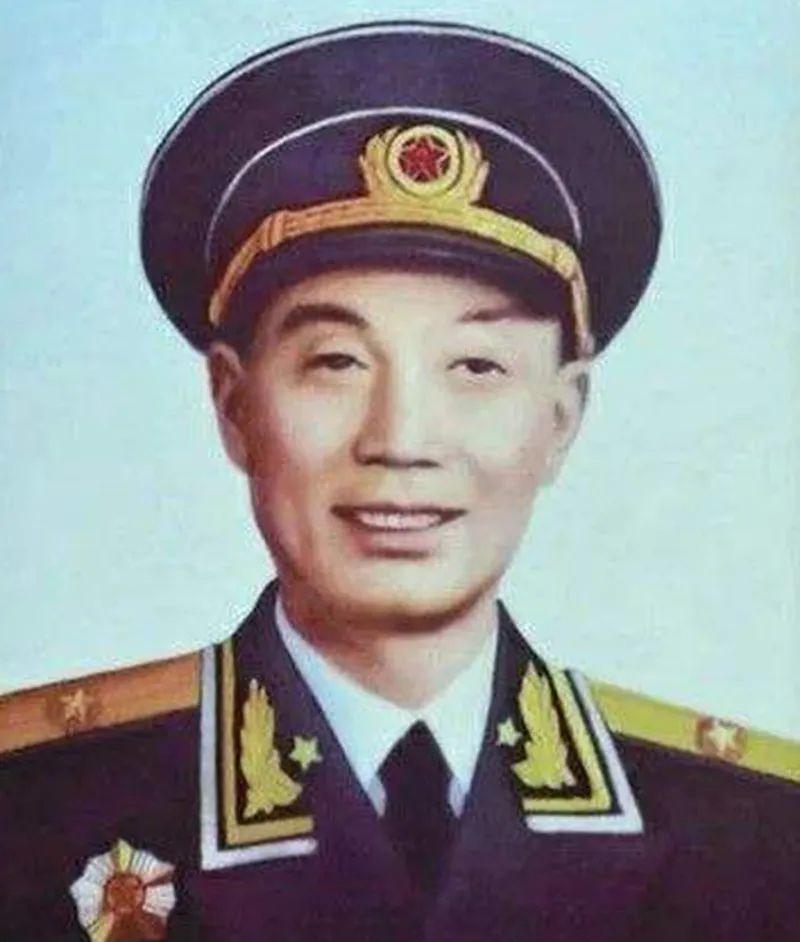Presumably, many people have heard of the "Good Eighth Company on Nanjing Road", which is the Eighth Company of the Third Battalion of the Shanghai Garrison Regiment, which belongs to the Shanghai Garrison District. The predecessor of the Shanghai Garrison District was the Songhu Garrison Headquarters, and after several changes, the relevant departments established the Shanghai Garrison District on the basis of the Nanjing Military Region's Public Security Forces and the Songhu Garrison District Organs. The man we are talking about today has served in the Shanghai Garrison District, and has also served as the deputy commander of the Shanghai Garrison District, and was awarded the rank of major general at the age of 48, but this person was stripped of his rank at the age of 67.

This person is Zhang Yi'ai. So, what is the story of Zhang Yi'ai? Born in 1913 in Lu'an, Anhui Province, Zhang Yi'ai joined the army in 1931 at the age of 18, joined the Red Army, and became a member of the Red Fourth Front. After joining the Red Army, Zhang Yi'ai successively served as the commander of the four major brigades of the guerrilla command in northeast Hubei and the deputy commander of the pistol regiment of the Red Twenty-fifth Army. After the Long March of the Red Fourth Front, Zhang Yi'ai remained in the Soviet zone and persisted in guerrilla warfare for three years, preserving the seeds of fire for the revolution.
In 1937, the War of Resistance Against Japanese Aggression broke out in full swing, the guerrilla forces in the eight southern provinces were reorganized into the New Fourth Army, and Zhang Yi'ai also joined the New Fourth Army, entered the Seventh Regiment of the Fourth Detachment of the New Fourth Army, became a battalion-level cadre, and participated in military operations against the Japanese invaders under the leadership of Gao Jingting. After the Anhui Incident, Zhang Yi'ai joined the Fourth Brigade of the Second Division of the New Fourth Army, successively serving as the deputy regimental commander and regimental commander of the Eleventh Regiment, and followed the New Fourth Army to usher in the victory of the War of Resistance Against Japan.
During the Liberation War, Zhang Yi'ai's unit was reorganized into the East China Field Army, and Zhang Yi'ai first entered the Second Column and served as the chief of staff of the Fourth Division, and soon after was transferred to the Thirteenth Column as the deputy commander of the Thirty-seventh Division. During the Battle of Jinan, Zhang Yi'ai's troops were ordered to attack the inner city of Jinan, and the battle between the two sides was fierce, Zhang Yi'ai and others set up their headquarters on the front line, and finally they successfully completed the tasks assigned by their superiors with the cooperation of friendly forces and liberated Jinan.
After the founding of New China, Zhang Yi'ai served as the commander of the 59th Division of the 20th Army of the Volunteer Army, leading the troops into the Korean War and contributing to the victory of the War to Resist US Aggression and Aid Korea. After returning from Korea, Zhang Yi'ai joined the Navy and served as the commander of the Marine Division and the commander of the Navy's Zhoushan base. In 1955, Zhang Yi'ai was awarded the rank of colonel, and in 1961, at the age of 48, Zhang Yi'ai was awarded the rank of major general and became the founding major general.
After this, Zhang Yi'ai was arranged to serve in the Shanghai Garrison District, and successively served as the chief of staff and deputy commander of the Shanghai Garrison District. When Zhang Yi'ai was the deputy commander of the Shanghai Garrison District, the commander of the Shanghai Garrison District was Zhou Chunlin, and in 1971, when the Shanghai Party Congress was held, there were two places in the Shanghai Garrison District Standing Committee, zhou Chunlin naturally counted as one, but when Zhou Chunlin nominated Liu Yaozong, the political commissar of the Shanghai Garrison District, he was rejected, and finally Zhang Yi'ai became another member of the Standing Committee, and after entering the Standing Committee, Zhang Yi'ai gradually came together with the "Gang of Four".
In October 1976, after smashing the "Gang of Four", Xu Jingxian and Wang Xiuzhen in Shanghai brought Zhang Yiai, Li Binshan and others to discuss and plan to launch an armed rebellion. At that time, Zhang Yi'ai had already entered the so-called "No. 1 command point" in charge of the commander-in-chief, and the matter had reached a very critical moment, but fortunately, the central authorities took effective measures to stop this armed rebellion.
Zhang Yi'ai was also removed from his post for his involvement in an attempted armed rebellion, and in 1980, when the relevant authorities reviewed the "two cases," Zhang Yi'ai was found guilty of counter-revolution by the Supreme People's Court, and the 67-year-old Zhang Yi'ai was stripped of his military rank. It was also because of the mistakes that when the People's Liberation Army implemented a new military rank in 1988, Zhang Yi'ai, who had been a founding major general, did not receive any medals. In 2002, Zhang Yi'ai died of illness at the age of 89.